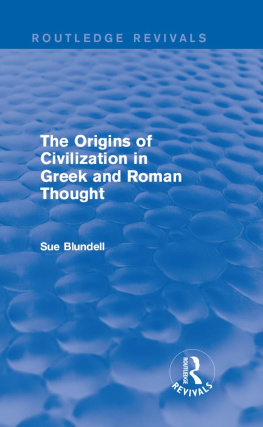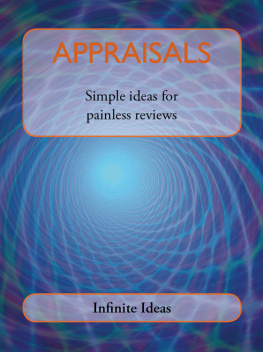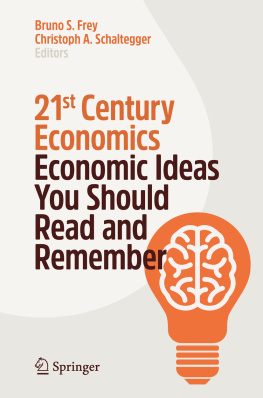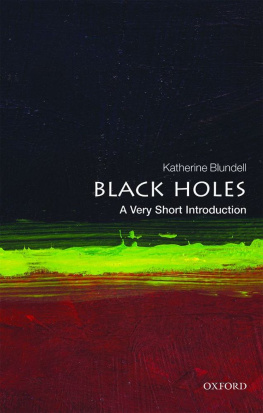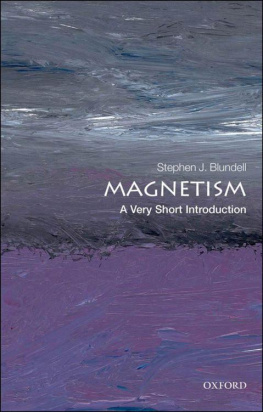First published in Great Britain in 2001
and this edition published in Great Britain in 2015 by
2 Lord North Street
Westminster
London SW1P 3LB
in association with London Publishing Partnership Ltd
The mission of the Institute of Economic Affairs is to improve understanding of the fundamental institutions of a free society by analysing and expounding the role of markets in solving economic and social problems.
This collection copyright The Institute of Economic Affairs 2015
How to move a nation reprinted, with permission, from the February 1987 issue of Reason magazine. Copyright 2001 by the Reason Foundation,
3415 S. Sepulveda Blvd, Suite 400, Los Angeles, CA 90034. www.reason.com
Waging the war of ideas: why there are no shortcuts Copyright 1990
by the Heritage Foundation; reprinted by permission
The right use of ideas reprinted by permission of the Daily Telegraph
On Milton Friedmans 90th birthday we still need his remedy
reprinted by permission of the Daily Telegraph
Beyond ideology: towards the demise of the state and the coming era of
consumer politics reprinted by permission of The Scotsman Scotsman 2003
Lessons of the past fifty years show we need to create a freemarket Utopia
reprinted by permission of the Daily Telegraph
All other individual articles copyright The Institute of Economic Affairs
The moral right of the author has been asserted.
All rights reserved. Without limiting the rights under copyright reserved above, no part of this publication may be reproduced, stored or introduced into a retrieval system, or transmitted, in any form or by any means (electronic, mechanical, photocopying, recording or otherwise), without the prior written permission of both the copyright owner and the publisher of this book.
A CIP catalogue record for this book is available from the British Library.
ISBN 978-0-255-36700-4 (ebk)
Many IEA publications are translated into languages other
than English or are reprinted. Permission to translate or to reprint
should be sought from the Director General at the address above.
Typeset in Kepler by T&T Productions Ltd
To the memory of:
F. A. Hayek (18991992)
Antony Fisher (19151988)
Ralph Harris (19242006)
and Arthur Seldon (19162005)
They were the few, but they were right, and they saved Britain.
Margaret Thatcher (1987)
The IEAs founding in nine words:
Hayek advised Fisher;
Fisher recruited Harris;
Harris met Seldon.
John Blundell (often)
The author
John Blundell, 9 October 1952 22 July 2014
John Blundell was educated at Kings School, Macclesfield, and at the London School of Economics. He headed the Press, Research and Parliamentary Liaison Office at the Federation of Small Businesses from 1977 to 1982, and was a Lambeth Borough councillor from 1978 to 1982. From 1982 to 1993 he lived in the USA where he was, inter alia, president of the Institute for Humane Studies (198891); president of the Atlas Economic Research Foundation (198791); president of the board of the Congressional Schools of Virginia (198892); and president of the Charles G. Koch and Claude R. Lambe Charitable Foundations (19912).
He assumed his duties as Director General of the Institute of Economic Affairs on 1 January 1993 and stepped down in 2009 to pursue lecturing and writing opportunities in the USA.
He also served as co-founder and chairman, from 1993 to 1997, of the Institute for Children, Boston, MA; founder director (19913), Institute for Justice, Washington, DC; international trustee (198893), The Fraser Institute, Vancouver, BC; and founder trustee of Buckeye Institute, Dayton, OH.
He was a director of Fairbridge and of the International Policy Network and chairman of the Institute Development and Relations Committee of the board of Atlas Economic Research Foundation (USA). He was also a board member of the Institute for Humane Studies at George Mason University, Fairfax, VA; of the Institute of Economic Studies (Europe) in Paris, France; and of the Mont Plerin Society.
Foreword to the 3rd edition
Basic to the struggle to promote personal liberty is the task of persuading our fellow men not only that free market allocation of goods and services is economically efficient and wealth-enhancing but also, and much more importantly, that market allocation is morally superior to other methods of exchange. Waging the War of Ideas , this IEA Occasional Paper, containing published papers by its Director General, John Blundell, is part of that continuing struggle and duty of liberty-loving people worldwide.
John Blundells papers and reviews include a short documentation of the war of ideas from the post-World War II days, when communism and economic planning were seen as the wave of the future, to the post-Thatcher/Reagan period. The pro free-market policy of the Thatcher and Reagan administrations went a long way towards laying the groundwork for the collapse of the Soviet Union. As a result of tales of economic incompetence, human suffering and murder in pursuit of the Marxist-Leninist world vision under the USSRs brutal regime, communism no longer has any intellectual respectability. Indeed, save for minor mopping-up operations here and there, communism as an idea has been relegated to the dustbin of history.
The UKs top generals in the war of ideas were Antony Fisher and Professor Friedrich Hayek. Professor Hayeks The Road to Serfdom , written in 1944, was the opening salvo of the attack on the ideas of the Fabian Socialists that had taken over thinking in the UK and on the Continent. Entrepreneur Antony Fisher played a vital role in the war of ideas. Fishers success in the UKs first broiler-chicken farm, mass-producing Buxted Chickens, provided the economic resources that helped promulgate and market Professor Hayeks ideas of spontaneous order and liberty. After all, what is the value of ideas on liberty if they are consigned to dusty library shelves and known by few academics? Unlike many generous donors, Sir Antony Fisher was not passive. He understood the ideas of liberty and was an active soldier in the war of ideas. Moreover, Antony Fisher was key to the start of free-market think tanks in Europe, Africa and the Americas.
Mr Blundells papers treat us to a thumbnail sketch of the genesis of the IEA. The collection of four photographs hanging in the boardroom of the Institute tells a concise history, as John Blundell explains: Hayek advises Fisher; Fisher recruits Harris; Harris meets Seldon. In nine words, that is the start of the IEA. Thus, in 1956, Ralph Harris (later to become Lord Harris of High Cross) became the IEAs general director. One year later, Ralph Harris was joined by Arthur Seldon who became the Institutes first editorial director. Harris and Seldon co-authored many of the IEAs early papers; the theme then, as well as now, was that market allocation of goods and services, without the heavy hand of government, produces a superior outcome.
During the 1950s and 1960s, when socialism ruled the UKs academic institutions, news media and politicians, the HarrisSeldon publications and those of their colleagues were seen at best as heretical and at worst as fascist. Ultimately, however, the IEAs persistence won the respect of the more thoughtful members of the media and the academic community and also of the Prime Minister, Margaret Thatcher. The IEAs research provided the Prime Minister and her administration with intellectual ammunition to prevent Britain, as Blundell says, from becoming the first fourth-world country, namely a rich nation returning to poverty.
A major shortfall among practitioners of economics is that we have not made our theory and principles readily accessible to the ordinary person untrained in economics. Many of our fellow men therefore fall easy prey to charlatans and quacks, of all political persuasions, promising one version of the free lunch or another. To make Economic Affairs readily accessible and comprehensible to the ordinary person has been the IEAs stellar forte and this collection of papers by John Blundell is a continuance of that tradition and speciality.


